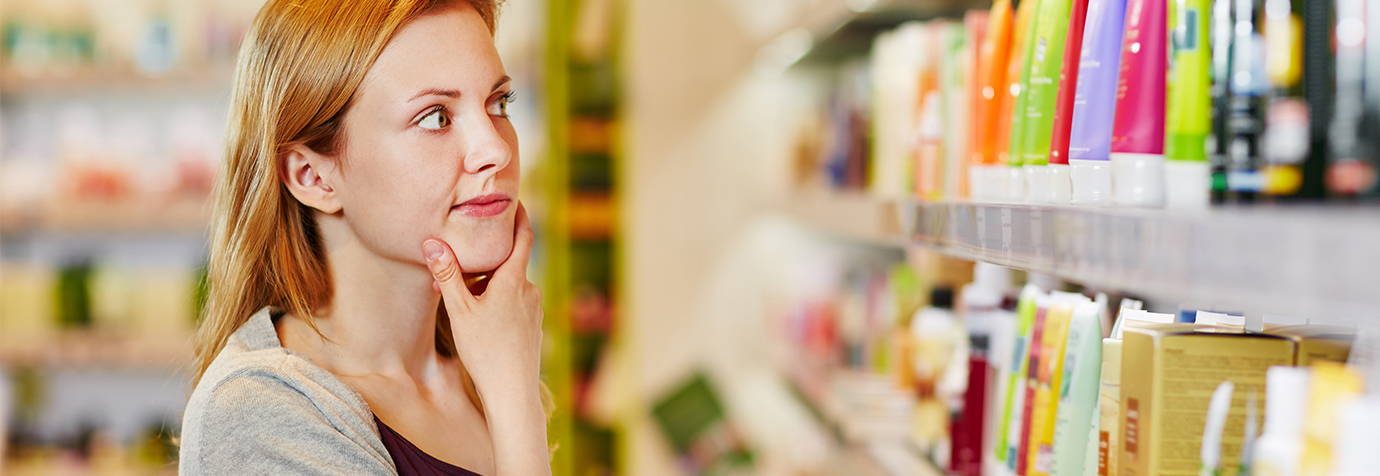

Hungry for knowledge but starved for time? The german company Gesellschaft für integrierte Konsumforschung (GIK) presented key insights gleaned from its studies at best4 SPEED DATE, the company’s new series of quick events. The first event was held on 15 July 2021 and focused on the topic of sustainability. Tanja Seiter, Director Media Research at Hubert Burda Media, discussed public awareness for sustainability and what this means for businesses and how they position their brands in her presentation.
More specifically, Tanja explored the question of what a brand must do to meet the public’s demand for environmental awareness and sustainability, and what it is that makes a brand unique in this context.
To begin with, she discussed the public’s willingness to live in a sustainable way. As the data shows, there had been little change over a long period of time in the role sustainability played in the purchasing habits of Germans, with the share of the country’s total population who considers sustainability a key factor in the products they purchase remaining relatively constant at between 34 and 35 per cent in the years 2013 to 2018. It was not until the last two years that there has been a discernible rise in consumer willingness to purchase sustainable products, with the figure now standing at 41 per cent. This includes a 34 per cent rise in the public’s willingness to purchase a chosen assortment of natural and organic products along with a 23 per cent increase in respondents with a stated preference for fair trade products. All the while, the public is growing more aware of climate change as an issue. In a survey taken in 2020, 44 per cent of the population* stated that they are generally or extremely pessimistic when it comes to the environment over the next two to five years. In 2018, this figure was only 36 per cent.
There is a new target group of green consumers with different consumption habits that companies need to address in new and different ways. Women and the highly educated are overrepresented in this group. Professionals, executives and freelancers with a higher-than-average household income also make up a large share of green consumers. Their values are different from other groups who do not place the same focus on sustainability. For example, many green consumers consider the ideal job to be one that allows them to be involved in environment and social issues and want to be part of efforts to actively bring about change in society. Their propensity to spend has not gone down, but has actually gone up. They place great value on quality and like to try out new products. These two traits mean they are open to advertising. Along with that, they give advice and are important multipliers for brands through the tips they pass on to other consumers.
Sustainability is a way for companies to stand out from the competition and opens up real opportunities in a time when consumers increasingly see brands as interchangeable. Sad but true, the survey revealed that respondents would not even care if 77 percent of the brands were simply to disappear from the market altogether (source: Meaningful Brands, Havas Group). This raises the question: what makes a brand unique and indispensable today? And what role does purpose play? According to b4p trends, the top-5 factors are personal experience with products, public opinion of the brand, communication (advertising and corporate communication), a brand’s stance on social issues and commitment and the opinions of family and friends. The brand purpose was the fourth most important factor. 65 per cent of those surveyed consider it (very) important that the brands whose products they buy take a clear stance on social issues, while 68 per cent feel it is important that they take a clear stance on environmental issues.
People’s expectations in this regard rise in times of crisis, with 75 per cent of the public being of the belief that companies should take a stance.
This is also reflected in the latest advertising research from b4t (Best for Tracking Creative). The purpose motives in the survey years 2019 and 2020 were above the benchmark value in all four categories (recognition, branding, action taken/planned and appeal). Of the four, action taken/planned ranked much higher than the others.
Purpose is more than just a way to gain an edge on the competition, as b4p’s trend data shows: If brands do not take a clear stance, they risk losing prestige and being boycotted by consumers in the worst case.
If you want to learn more, please check out the charts from the presentation on the GIK website or the Sustainability Report.
![[Translate to En:] [Translate to En:]](/fileadmin/Assets/04_News_Research/image/Teaser_Sustainabilty_Report.jpg)